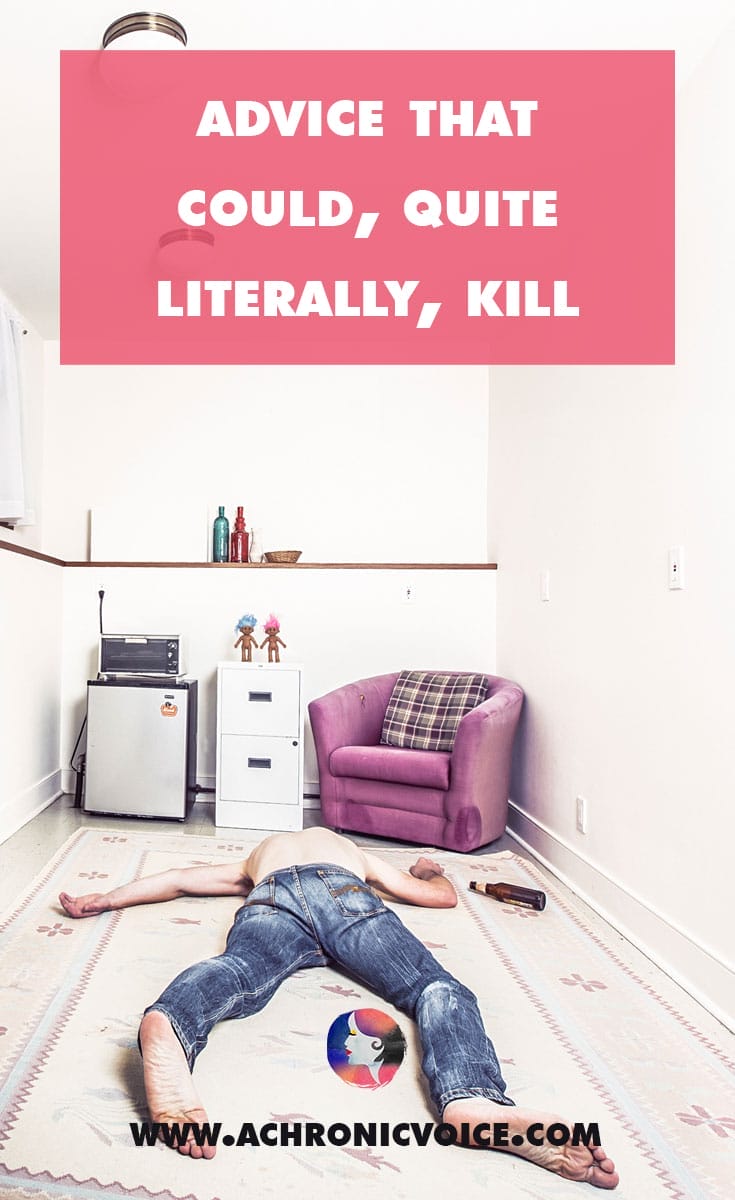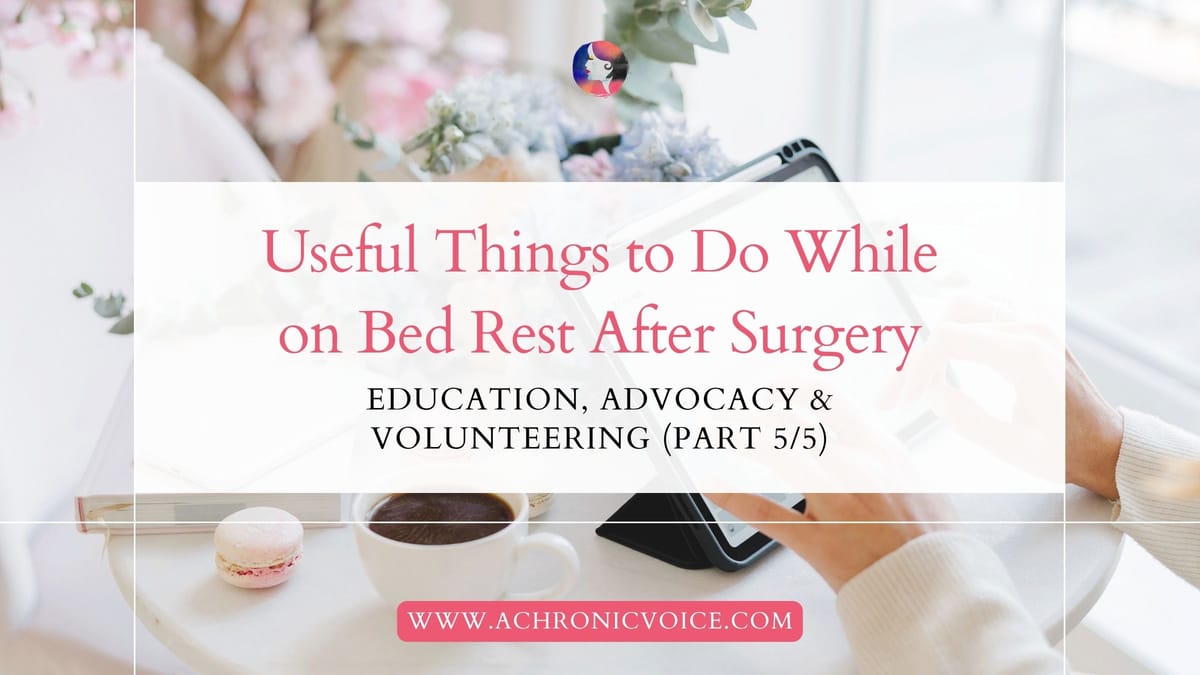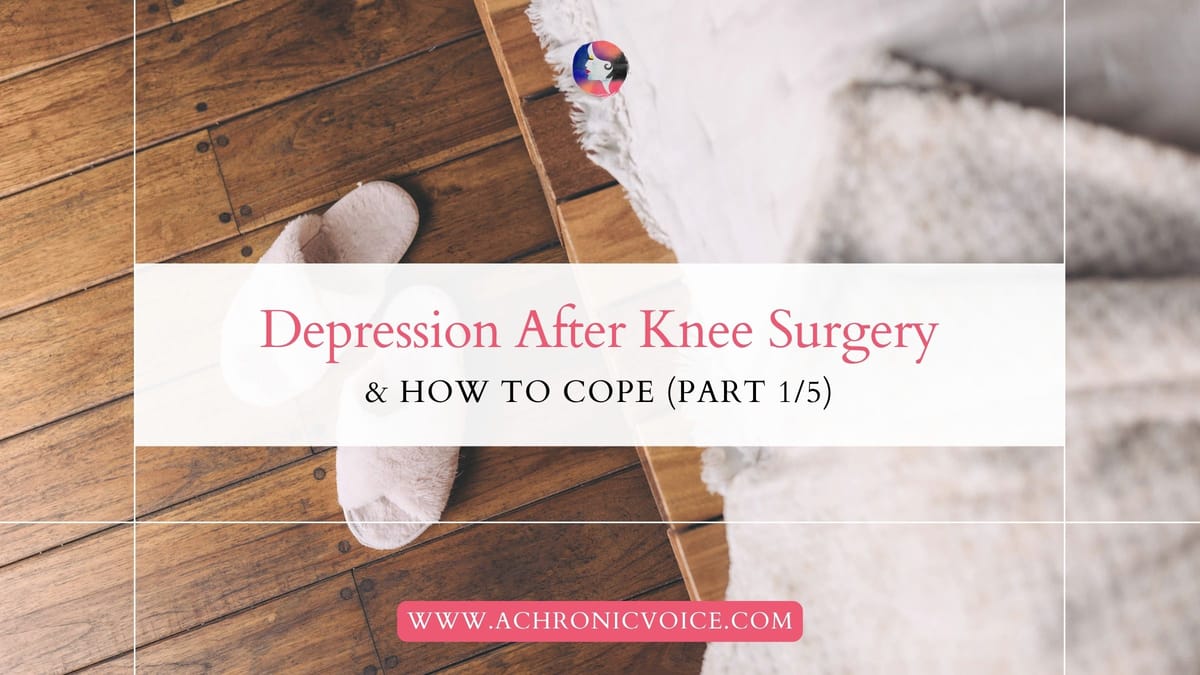One Size Does Not Fit All — Doctor's Perspective
When it comes to chronic illnesses and autoimmune diseases, one size does not fit all. Even our doctors deal with us on a case by case basis:
“This drug works for him, but can she tolerate it?”
“It isn’t doing anything for her at all, even after 6 months.”
“This drug is superb for joint aches caused by Rheumatoid Arthritis! But your white blood cell count has been flaky from Sjögren's disease, so we'll have to stop using it."
“This is the latest drug that has worked for almost all our patients, but it costs $10,000, and there is no guarantee that it will work for you, too.”
It isn’t quite like a cough or a sore throat, where you go to the pharmacy to get the same prescription as everyone else.
*Disclaimer: This article is meant for educational purposes, and is based on my personal experiences as a patient. I am not a doctor, and nothing in this article should be substituted for medical advice. Please consult your own doctor before changing or adding any new treatment protocols. This post may also contain affiliate links. It will cost you nothing to click on them. I will get a small referral fee from purchases you make, which helps with the maintenance of this blog. Read our Privacy Policy page for more information. Thank you!
Pin to Your Chronic Illness, Awareness & Communication Boards:

One Size Does Not Fit All — Patient's Perspective
Even patients with the same chronic illness might not understand the full spectrum of their own disorder. For example, there are actually four different types of Lupus, with many different symptoms.
It might destroy the kidneys of one person, but affect the skin of another. Both of them have the same autoimmune disease – Lupus – yet they may never understand what it feels like to be in the other person's shoes.
Advice That Could Kill — My Personal Pet Peeve
I am sure that almost everyone with a chronic illness has a pet peeve. Mine, hands down, would be unsolicited health advice given by acquaintances who have no idea who you really are as a person. They don't know what you do on a daily basis, or the specifics of your disorders.
They dispense advice for exercise, but are not there beside you when you are struggling to sit up in bed. Or maybe you are already doing more exercise than them, despite chronic pain!
The Tricky Thing About Antiphospholipid Syndrome
I’ve had many people enthuse about magical beans and seeds, or suggest I go vegan. This can be little tricky when one has Antiphospholipid Syndrome (APS), an autoimmune disorder where your blood has a tendency to clot.
The blood thinners I take require close monitoring of the foods I eat. Variations in my diet can increase the risk for blood clots that could kill me (which is what the title of this post meant). I once ate a plateful of quinoa and woke up to a giant bruise covering half my arm.
Who knew that a non-green food would be that dangerous? I discovered that quinoa in itself does not contain Vitamin K (an important vitamin that helps with blood clotting, but can be dangerous with APS). But the shell enclosing it contains saponins (Chen et al., 2015), which triggers blood thinning instead. Anyway, who knew a plate of organic, healthy stuff wasn’t so good for me.
Reframing Unsolicited, Unwanted Advice
These days I am trying to understand the perspective of a healthy person a little more. I put myself in their shoes and ponder, “How could they possibly understand? I can’t blame them for that.”
My psychologist has also played a key role in my journey towards psychological healing for the past year. She presented this issue to me in a different light - whilst you are not their number one concern, their thoughts are still coming from a good place, and their intentions are not malicious.
This thought calms me down, so I smile, nod and meditate on it whenever someone comes along and does it again. I try to listen – perhaps they actually do have something new that I could consider. If not, I try to let the comments slide off before they permeate the barrier of my mind to trigger anger – or maybe I am just getting older 😉






Comments Archives:
Comments imported from previous WordPress site.-
Donna
-
Sheryl Chan
Start a new conversation in the Member Comments below!Great post and very valid points. I particularly like the bit when you said the people who advise you to exercise aren’t there to see you try to sit up In the morning– so very true. The people advising often don’t even see part of the picture!
Yup. Giving advise when you hardly know anything about it makes you look stupid at best, and kills somebody at worst 😉 Thank you for taking the time to read…keep up with raising awareness through your own blog!